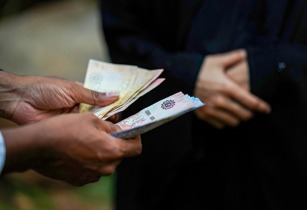COVID-19 will weigh on the economies of the Gulf Cooperation Council (GCC) region as weakening global demand drags down oil prices and hampers important industries such as tourism and real estate, rating agency S&P Global Ratings has said
?Weaker global demand will strain GCC economies, and the effect will be amplified by key trading partner concentrations,? the agency stated in the ?Prolonged COVID-19 Disruption Could Expose The GCC? Weaker Borrowers,? report.
?As global financing conditions deteriorate, funding costs for more-leveraged borrowers are rising and investor appetite for less-creditworthy issuers could fade,? the report added.
The publication follows recent revisions to S&P?s oil price assumptions to US$40 per barrel in 2020 from US$60 previously.
The agency stated that the GCC?s hospitality industry, which includes sectors like airlines, hotels, and retail, will see lower revenue because of decreased tourism and business flows, as travel aversion and restrictions bite during the peak tourism season.
These factors will also reduce transit and outbound travel by visitors and residents respectively. Several GCC states have suspended their travel connections with countries where virus cases are high or currently spiking.
?We have yet to see whether COVID-19 will dent the number of pilgrims travelling to Saudi Arabia. Both the kingdom and neighbouring UAE would take a hefty economic hit in 2020 if the pilgrimage season, which starts in July, or Dubai?s hosting of the 2020 World Expo (Expo 2020), which starts in October, are affected,? S&P said.
However, despite this potential disruption and the uncertain recovery path, S&P does not expect all activity to be lost. Instead, it could be postponed - visits and events in the region could be rescheduled to later dates.
Across most major bourses, prices have declined sharply and risk aversion has spiked. For the GCC region, this means issuers that have weaker credit quality or significant direct exposure to affected industries will find it difficult to access capital markets.
A few bond and sukuk issuances have been cancelled because of the less-supportive market conditions, the agency noted.
S&P said it remains to be seen how the reduction in interest rates will play out for issuers in the region. However, we anticipate that rising pressure on cash flows and earnings will test the ability of certain players to access the market.
As global financing conditions deteriorate, funding costs for more-leveraged borrowers are rising and investor appetite for less-creditworthy issuers could fade, S&P added.
For the GCC banking sector, S&P said the knock-on effects of lower economic growth and oil prices will further slow lending growth and increase the overall stock of problem assets at GCC banks.
?At the same time, interest margins will decline. Combined, these shifts will weaken GCC banks? profitability. Capitalisation is unlikely to be affected by these changes and it should continue to support bank ratings. On the funding side, the lower oil price is likely to slow deposit base growth.?






